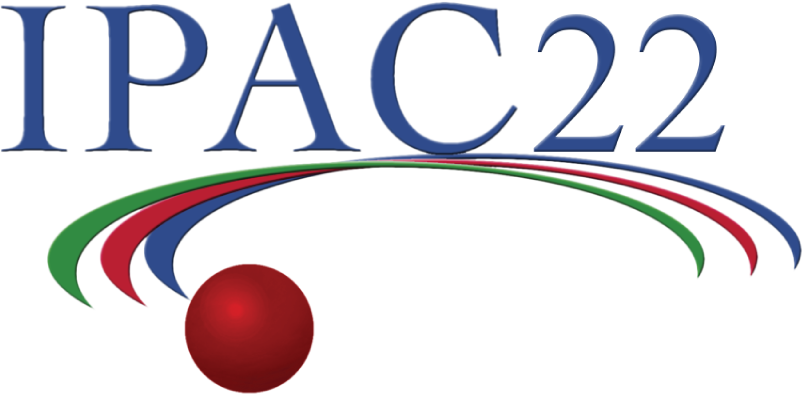VISAs & Traveling to Thailand
VISA INFORMATION
All participants attending IPAC’22 who do not hold a Thai passport require a visa. However, citizens of countries or regions which have visa exemption with Thailand can enter without a visa for a limited time.
Which visa type should you apply for?
IPAC’22 is supported by Thailand Convention Exhibition Bureau (TCEB), the participants who hold ordinary passport can apply for Tourist VISA.
Please see the welcome message from TCEB here.
Required Documents
(Please check websites of relevant embassy/consulate for specifically required documents)
- Passport or travel document with validity not less than 6 months
- Photograph of the applicant taken within the past six months
- Evidence of travel from Thailand (air ticket booking)
- Evidence of adequate finance (20,000 Baht per person and 40,000 Baht per family)
Visa Fee
- US $ 30.00 per entry or equivalent
The tourist visa fee is subject to change without prior notice.
Due to the COVID 19 pandemic the issuance of the tourist visa can be made online, by mail, or in-person depending on the current regulation of the Thai Embassy in your country.
How to Apply Online?
You can apply for Thailand visa online at Thai E–Visa official Website (link: https://thaievisa.go.th/)
- Create account
- Check eligibility and purpose of visit
- Enter application information
- Enter travel information
- Upload support document
- Review application
- Book appointment consulate
- Payment
PLEASE NOTE: We strongly advise participants to personally check entry and visa requirements before making travel arrangements at least 3 months ahead of time, as there might be country-specific conditions that you are not aware of. For most accurate information, please consult your nearest Royal Thai Embassy for further information.
For more information: Department of Consular Affairs
VISA Letter
A VISA letter can be requested from your online registration. On the process “Add Preference” please click “Yes” at the question “Do you require a VISA letter?.” This will guide you to enter your VISA letter information. After you have completed your registration payment, a VISA letter will be available to download from your online registration profile.
*If your VISA application has been rejected, the registration payment will be refunded, pending evidence of the rejection letter. Please contact registration@slri.or.th if you require assistance. If you require your VISA letter to include details of your program contribution, please include your contribution title and ID number when requesting these letters.
REQUESTS FOR INTERNAL PROCESS INVITATION LETTERS
For individuals who are required to secure funding to travel from their laboratory, an official IPAC’22 letter of invitation request can be made by contacting registration@slri.or.th. Please include your contribution title and ID number when requesting these letters.
Please note: This letter is not a visa invitation letter.
Participants requiring an invitation letter for visa purpose are advised to undertake the formalities of registration and requesting a visa letter as soon as possible.
WHAT YOU NEED TO KNOW!
TIME ZONES
Thailand has only one time zone. Thailand follows UTC+07:00, which is 7 hours ahead of UTC.
ELECTRICAL PLUGS
You may need an adapter in order to plug your appliances into the power sockets. In Thailand, there are three associated plug types, types A, B and C. Plug type A is the plug which has two flat parallel pins, plug type B has two flat parallel pins and a grounding pin and plug type C has two round pins. Thailand operates on a 220V supply voltage and 50Hz.
SENDING MAIL
Post offices are usually open 8.30am-4pm, Monday to Friday. The closest post office around the conference venue is “Impact Arena Post Office”. The bus no. 166 AC will travel pass Impact Arena Post Office.
CURRENCY
Thailand’s national currency is Thai Baht (THB), which comes in denominations of 20THB, 50THB, 100THB, 500THB and 1,000THB notes. Coins come in 1THB, 2THB, 5THB and 10THB coins, respectively.
Credit cards such as American Express, MasterCard, Visa, UnionPay and JCB are accepted in Thailand. VISA or MasterCard can be used everywhere credit cards are accepted. A good tip is to carry multiple credit cards and some cash. Merchants may impose credit card surcharges in some places.
Traveller’s cheques are not widely accepted in Thailand. You are not recommended to carry travel cheques to Thailand.
Thailand has a Goods and Services Tax (GST) of 7 per cent. You may be able to claim a refund for the GST paid on goods at the Tax Refund Scheme at the Suvarnabhumi Airport or Don Mueang International Airport before departing Thailand. Tourist Refund Scheme facilities are located in the departure are of international terminals.
WEATHER
The average high-temperature, in June, in Bangkok, Thailand, is around 34.4°C (93.9°F), while the average low-temperature is 26.3°C (79.3°F). In May, the average heat index (a.k.a. ‘feels like’, ‘apparent temperature’), that combines both air temperature and relative humidity, is evaluated at 50.9°C (123.6°F).
TIPPING
Tipping is NOT customary in Thailand, there is absolutely NO mandatory requirement to tip anyone, but small gratuities for great service are very much appreciated. However, some hotels, restaurants and cafes will add a 10 percent surcharge to prices.
INTERNATIONAL DIALING CODES
The international dialing code for Thailand is 66. Each region also has an area code, please ask at the hotel lobby or find more information via https://www.rebtel.com/en/international-calling-guide/phone-codes/thailand/.
Further useful Hotline in Thailand is listed here:
- To call an emergency or accident number in Thailand is 1669.
- To call a Police is 191.
- To call a Fire is 119.
LEFT–HAND TRAFFIC
In Thailand, cars, bikes and other vehicles travel on the left-hand side of the road of a bi-directional traffic. Pedestrians also walk on the left-hand side of a path or a corridor in general. Look to your RIGHT first then left to check incoming traffic when crossing a street or road. Same rules apply when you are making turns when driving.
